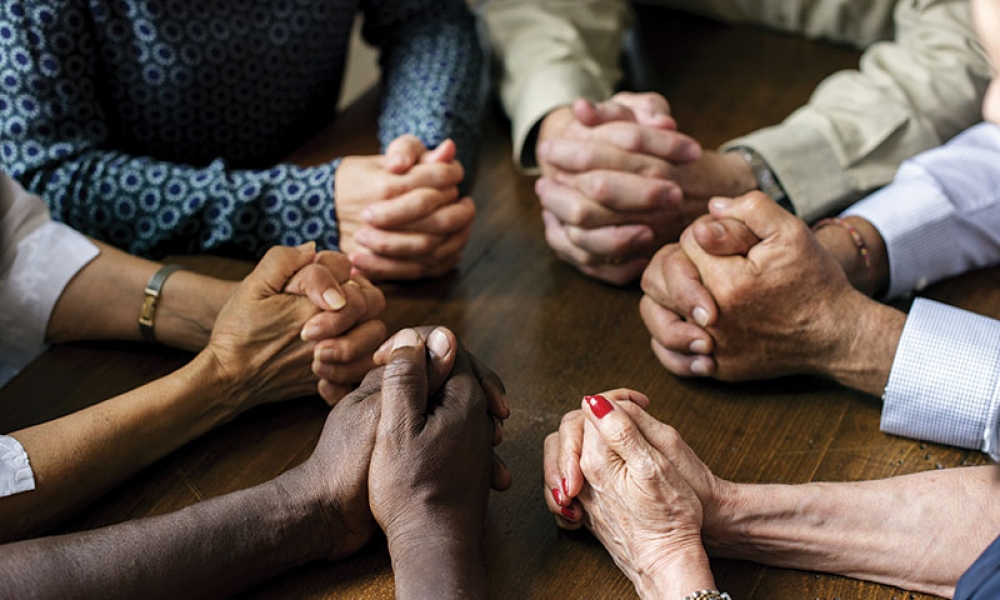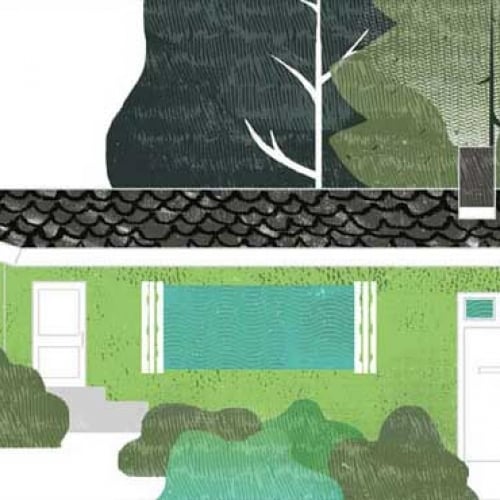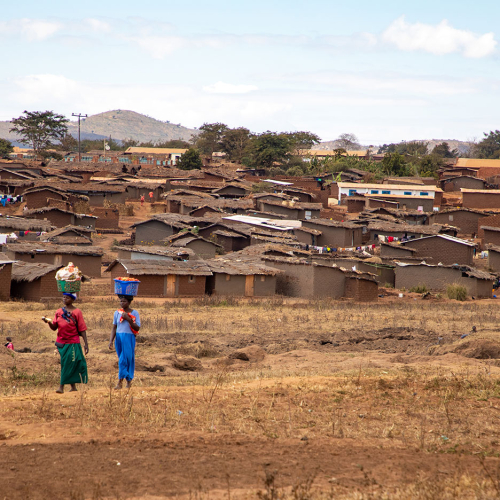Introduction from Randy
Due to recent events that have highlighted our world’s ongoing struggle with racial violence and injustice, we wanted to bring you a special edition of Witness that was dedicated to this theme. Clearly, this is not exclusively a North American problem, but a problem of the human heart. In fact, I would say that there is not a single place on this planet without a pre-existing struggle for racial justice. It’s everywhere. Everyone is affected. Everyone is responsible. No one is immune to the pain that exists when people harbour prejudice toward one another based on outward differences like skin color. This is a sin issue, and therefore, a global issue.
At Multiply, in recent months, we organized a Racial Reconciliation Task Force to help us become aware of our own issues. We have people of color among our leadership and staff that needed to be heard. We are aware of White privilege within our organization and our churches, so we wanted to take some steps toward not only addressing the inequity but also relinquishing the privilege. We have embraced seven key recommendations from the task force to begin making changes. We realize that these issues can’t be solved overnight, but we are deeply committed to striving for sincerity, honesty and humility.
One of the steps we decided to take was to invite our fellow Multiply workers, Jessica Garcia-Driedger and Joanna Chapa, to be the guest editors of this edition of Witness. As my dear sisters in Christ and co-workers in the Gospel, I deeply respect their faith, their giftedness and their unique perspectives on this struggle. Joanna is a long-term worker in Peru, while Jessica serves as our Short-Term Mission Coordinator in Western Canada. They are both of Mexican-American background and both serve on our Racial Reconciliation Task Force. Therefore, on behalf of our editorial team, I want to invite you to listen to their hearts and learn from their experience as they guide us through this edition of Witness.
Let’s remember that racial justice is at the very heart of the Gospel of Jesus and at the very heart of our mission: together that the world may know.
Randy Friesen
________________________________________________
Joanna
One hot Sunday afternoon in Peru during a Kids Bible Club, I had the glorified job of being the keeper of the colored pencils. This meant kids would approach me and ask for whatever color they wanted to use. This was always a good opportunity to engage them in conversation and hopefully make them smile. But on that particular day, I left with sadness in my heart.
“¿Me das Color Piel?” (“Can you give me Skin Color?”), the little girl asked me. I was taken aback. Skin color? Assuming she meant a color that reflected her dark skin, I was baffled when she pointed out there was a pencil labeled “Color Piel” (Skin Color).
I was truly stunned. The stark contrast between her small dark hand and that white colored pencil will forever be embedded in my mind. She couldn’t see the injustice in that moment or the devaluation. Sadly, I knew this was just one of the ways that this little girl would forever be subjected to someone else’s standards of normality.
Holding back tears, I stared at her big brown eyes and made sure she looked at mine. “But that’s not your skin color. The label on this pencil is wrong! There is more than one skin color! Your skin color is beautiful and I would choose to color my picture with this color.”
I handed the little girl a dark brown colored pencil that captured the color of her skin, but she refused to accept it.
“No, I want to color with Color Piel.”
I thought back to racial injustices in my own childhood in Texas and how I came to believe the lie that White was superior. In elementary school, we were told that we weren’t allowed to speak Spanish, only English. For those of us who were trying to navigate a bicultural heritage, that was difficult. Later, as I stepped into “White spaces” outside of my Latin community, I continued to struggle to prove myself. There were many who questioned my presence and by their words made me feel unworthy to be there. No matter how hard I worked, my brownness would disqualify me.
Fortunately, there were others who spoke truth, affirmation and encouragement. I will never forget the words of a middle-aged White man who said, “Joanna, you have three things going against you in our world: you’re young, you’re a woman, and you’re Hispanic. But know that I see you, I affirm you and I believe in you! I’d follow you any day!”
Brought to tears, I understood what it meant to have an ally that day.
Jessica
Wherever we go, Joanna and I keep hearing the same message loud and clear: White is better. Whether it’s in Peru or the Philippines (where we’ve served), or in Texas or California (where we grew up), the message has been the same: our brown skin color is somehow inferior.
I grew up in a Latin neighborhood in the greater Los Angeles area, but I didn’t feel the prejudice of others towards me until I attended a predominantly White university. As an extremely outgoing and optimistic person, I never let my skin color, background or cultural differences disqualify me from opportunities as a student leader, mentee or employee. But I knew that if I wanted a seat at the table, I’d have to find that extra chair and stand on it until someone noticed me and allowed me to squeeze in.
Unfortunately, pushing my way up to these tables of opportunity often meant leaving my best qualities at the door, much like what happened when my parents immigrated to the United States. It hurts to look back and think that my entire upbringing and culture was reduced to differences in food, language and skin color. There was so much more that made me special, including my parent’s values, their struggles and sacrifices as immigrants, their faith in Jesus, even the way our Latin church expressed worship and praise. All of these things made me truly different and gave me unique perspectives that could make me an integral part of any team. But instead, people often reduced the differences to tacos, Spanish and the ability to tan without using tanning lotions.
I became weary of fighting for a seat at the table. The fact that I squeezed myself in meant that I could just as easily be squeezed out. The hope of opportunity was great, but so was the fear of rejection. I experienced something very different when Jesus invited me to sit at his table. Finally, I could bring all of who I was with me.
Joanna and Jessica
In the last book of the Bible, there is a vision of a “vast crowd, too great to count, from every nation and tribe and people and language, standing in front of the throne and before the Lamb” (Revelation 7:9). What a day to look forward to! All things will be reconciled to God, and we will all be reconciled to one another. Injustice will cease to exist, and God will reign in righteousness.
Throughout the Bible, God is calling his people toward this vision of unity and equality. Even in the Old Testament law, God is sharing his heart for the vulnerable, the foreigner, the orphan, the widow, the marginalized. He is inviting his people to live according to mishpat (justice), which means taking action to correct injustice, and tsedaqah (righteousness), which means being in right relationship with each other despite differences. This is what the community of God’s people should look like.
When Jesus began his public ministry, he said, “The Spirit of the Lord is upon me, for he has anointed me to bring Good News to the poor. He has sent me to proclaim that captives be released, that the blind will see, that the oppressed will be set free, and that the time of the Lord’s favor has come” (Luke 4:18-19).
In God’s kingdom, all are welcome, all are seen, all are important. Every human being has value and is worthy of dignity, because each one of us bears God’s image. We are all welcome at his table. Are we willing to embrace our brothers and sisters at God’s table, whatever their skin color, whatever language they speak?
In order to become the community that God intends us to be, we must be ready to reach out to the marginalized and oppressed that live among us. We must give up trying to change others into our own likeness and allow God to transform us into Christ-likeness.



